Hooray for progress!
President Biden signed a Bill on Thursday June 17, 2021 to make “Juneteenth” an official Federal holiday; it will be the Law of the Land …
… effective immediately.
We were anticipating this … last year! We planned for it and advocated for the immediate adoption of the Juneteenth tradition to be recognized, accepted and celebrated by all Americans. See here, how relevant this is for the State of California – normally, a non-Slave State in history:
VIDEO – How California history fits into Juneteenth celebrations – https://youtu.be/ae3jZi6hO7M
Sacramento Bee
Juneteenth is the oldest known celebration marking the end of slavery in the United States. It was originally celebrated June 19, 1865. Here’s what to know about the event, and where California fits in.More from The Sacramento Bee:
- Subscribe: https://bit.ly/2taRLFR
- Twitter: https://twitter.com/sacbee_news
- Facebook: https://www.facebook.com/sacramentobee
- Website: https://www.sacbee.com
- Digital news subscription: https://bit.ly/2uu9SYs
So, it is only apropos to Encore our blog-commentary from last year (2020). See that post here/now:
————–
Go Lean Commentary – Happy Juneteenth
It’s an American thing, yet you in the Caribbean will still understand, resonate and empathize with this sentiment. This is true, based on the historicity that “Happy Juneteenth” is actually Happy Emancipation Day.
Despite the different legal history, all of the New World have the same social demographic history: same previous reality of an enslaved population of African people.
Most of these New World countries and territories endured abolition of their slavery institutions and have some form of an Emancipation Day to commemorate the “Sea Change”. These dates were identified in a previous commentary from the movement behind the 2013 book Go Lean…Caribbean. See this excerpt here:
Chronology of the abolition of slavery in the Caribbean Basin
| First abolition | Final abolition of slavery | Date of independence | |
| Haiti | 1793 | 1804 | |
| Dominican Republic | 1801 | 1822 | 1844 |
| Costa Rica | 1824 | 1821 | |
| El Salvador | 1824 | 1821 | |
| Guatemala | 1824 | 1821 | |
| Honduras | 1824 | 1821 | |
| Mexico | 1829 | 1810 | |
| British West Indies Anguilla Antigua and Barbuda Bahamas Barbados Belize Cayman Islands Dominica Grenada Guyana Virgin Islands Jamaica Montserrat Turks and Caicos Islands Saint Kitts and Nevis Saint Lucia St. Vincent and Grenadines Trinidad and Tobago |
1833-1838 1833-1834 1833-1838 1833-1838 1833-1838 1833-1838 1833-1838 1833-1838 1833-1838 1833-1838 1833-1838 1833-1838 1833-1838 1833-1838 1833-1838 1833-1834 1833-1838 |
1981 1973 1966 1978 1974 1962 1979 1979 1962 |
|
| Nicaragua | 1838 | 1821 | |
| Danish Virgin Islands Saint John Saint Thomas Saint Croix |
1846-1848 1846-1848 1846-1848 |
||
| Swedish Antilles Saint Barthelemy |
1847 | ||
| French Antilles Guaealoupe Guiana Martinique Saint Martín (French zone) |
1794 | 1848 1848 1848 1848 |
|
| Colombia | 1814 | 1851 | 1810 |
| Panama | 1851 | 1903 | |
| Venezuela | 1816 | 1854 | 1811 |
| Netherlands Antilles Aruba Curacao Bonaire Saba Saint Eustatius Suriname St. Martin (Netherlands zone) |
1863 1863 1863 1863 1863 1863 1863 |
1975 | |
| United States | 1863-1865 | 1776 | |
| Puerto Rico | 1873 | ||
| Cuba | 1880-1886 | 1898 |
Source: Retrieved August 28, 2019 from: http://atlas-caraibe.certic.unicaen.fr/en/page-117.html
———–
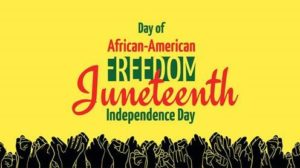
Let’s dive deeper in the American experience. So what date actually signified the abolition of slavery in the US? In a different previous commentary, these key dates were presented:
The cruel, inhumane institution of slavery finally ended in the United States … on which date?
- January 1, 1863 – with the Emancipation Proclamationby Abraham Lincoln
- April 9, 1865 – with the surrender of the Army of the Confederate States of America by General Robert E. Lee
- June 19, 1865 – with the Abolition Declaration in Galveston, Texas (Juneteenth)
- December 6, 1865 – Ratification of the 13th Amendment to the Constitution
- December 12, 1942 – Prohibition against the Peonage Systemby Franklin D. Roosevelt
- August 6, 1965 – Signing of the Voters Rights Actby Lyndon Johnson, that finally guaranteed citizenship rights.
- January 20, 2009 – Inauguration of Barack Obama, First Black Man as US President
- Not Quite yet, considering the Cop-on-Black Shootings on American streets, plus the enforcement of loitering laws against Blacks.
This was not meant to be a multiple choice! But rather, these answers demonstrate the continuous flow of racist oppression that had befallen the African-American experience, despite these identifiable dates ending the practices and legacy of America’s Original Sin.
Doubling-down on the Juneteenth details, let’s consider this encyclopedic reference:
Juneteenth (a portmanteau of June and nineteenth;[2] also known as Freedom Day,[3] Jubilee Day,[4] and Liberation Day[5]) is an unofficial American holiday and an official Texas state holiday, celebrated annually on the 19th of June in the United States to commemorate Union army general Gordon Granger announcing federal orders in the city of Galveston, Texas, on June 19, 1865, proclaiming that all slaves in Texas were now free.[6] Although the Emancipation Proclamation had formally freed them almost two and a half years earlier and the American Civil War had largely ended with the defeat of the Confederate States in April, Texas was the most remote of the slave states, with a low presence of Union troops, so enforcement of the proclamation had been slow and inconsistent.[6]
A common misconception is that this day marks the end of slavery in the United States. Although this day marks the emancipation of all slaves in the Confederacy, the institution of slavery was still legal and existed in the Union border states after June 19, 1865.[7][8] Slavery in the United States did not officially end until the ratification of the Thirteenth Amendment to the Constitution of the United States on December 6, 1865, which abolished slavery entirely in all of the U.S. states and territories.[9]
Celebrations date to 1866, at first involving church-centered community gatherings in Texas. It spread across the South and became more commercialized in the 1920s and 1930s, often centering on a food festival. During the Civil Rights movement of the 1960s, it was eclipsed by the struggle for postwar civil rights, but grew in popularity again in the 1970s with a focus on African American freedom and arts.[10] By the 21st century, Juneteenth was celebrated in most major cities across the United States. Activists are campaigning for the United States Congress to recognize Juneteenth as a national holiday. Juneteenth is recognized as a state holiday or special day of observance in 49 of the 50 U.S. states.
Modern observance is primarily in local celebrations. Traditions include public readings of the Emancipation Proclamation, singing traditional songs such as “Swing Low, Sweet Chariot” and “Lift Every Voice and Sing“, and reading of works by noted African-American writers such as Ralph Ellison and Maya Angelou. Celebrations include rodeos, street fairs, cookouts, family reunions, park parties, historical reenactments, and Miss Juneteenth contests. The Mascogos, descendants of Black Seminoles, of Coahuila, Mexico, also celebrate Juneteenth. – Wikipedia, retrieved June 19, 2020.
There is the need to reflect and remember the bad history of slavery and its abolition in the Americas. There is also the need for a few other action verbs, all starting with the letter “R”. Consider:
- Reconcile
- Repent
There is a lot of work to be done, in the US, throughout the Caribbean Basin, the New World and the whole world for that matter. Racial disharmony has been the world’s most troubling condition since the end of the Middle Ages. This was the consideration in many previous Encore productions. See these excerpts here:
| https://goleancaribbean.com/blog/?p=18421 | Title: Refuse to Lose – Introducing Formal Reconciliations
The practice of U.S. cities eschewing Columbus Day – because of the bad history associated with the Spanish Explorer’s atrocities – to celebrate Indigenous Peoples’ Day began in 1992”. [This is a form of] an informal reconciliation; it is time to pursue a formal reconciliation. (We have Indigenous People and oppressed people in the Caribbean too). |
| https://goleancaribbean.com/blog/?p=18096 | Title: 400 Years of Slavery – Emancipation Day: Hardly ‘Free At Last’
America was forged on the blatant hypocrisy of a legal premise that “All men are created equal”, and yet the African-American population was never treated equally, fairly or justly. In fact, by some analysis, America is still not equal-fair-just for African-Americans. In fact, just naming a street after Martin Luther King creates friction in American communities even today, 56 years after that iconic speech. |
| https://goleancaribbean.com/blog/?p=18093 | Title: 400 Years of Slavery – International Day of Rememberance
There is the need to reconcile the UGLY history of Slavery and the Slave Trade. Reconciliation and remembrance are the motives of this series of blog-commentaries …. With a documented start date in America of August 23, 1619, today [(August 23, 2019)] marks 400 years exactly. [So] this August 2019 series focuses on this 400 Year History of Slavery – past, present and future. |
| https://goleancaribbean.com/blog/?p=6022 | Title: Music Role Model ‘Ya Tafari’ – Happy Emancipation Day
All of these [Bristish Commenwealth] countries memorialize the abolition of slavery in the British Empire on August 1, 1834 with a National Holiday on the First Monday of August. (This holiday is commonly referred to as August Monday). The focus of this commemoration is not slavery, but rather a celebration of Caribbean culture – accentuating the positive. For those in the Caribbean Diaspora (US, Canada and the United Kingdom), the holiday does not go un-recognized … nor uncelebrated. |
| https://goleancaribbean.com/blog/?p=5695 | Title: Repenting, Forgiving and Reconciling the Past How does a community repent, forgive and reconcile from such a bad legacy? Easier said than done!For starters, do not proceed as if the events never happened. This is the lesson now being learned in modern day Spain …There is a need to reconcile a lot of bad episodes in Caribbean history. |
| https://goleancaribbean.com/blog/?p=4971 | Title: A Lesson in History – Royal Charters: Truth & Consequence
An earlier Papal Bull that sealed the fate and would prejudice the African Diaspora for 500 years. The African Slave Trade and institution of “Slavery” was legally predicated on a Papal Bull from Pope Innocent VIII (Giovanni Battista Cybo) in 1491; just months before Christopher Columbus’s historic first voyage. |
| https://goleancaribbean.com/blog/?p=2222 | Title: Sports Role Model – Playing For Pride … And More
The calendar of Black America includes several specific holidays. Juneteenth, celebrated every June 19, honors the day the Union Army liberated slaves in Texas following the end of the Civil War. Kwanzaa, beginning on Dec. 26, is a seven-day festival of African heritage. On Dec. 31, which is called watch night, churches hold worship services to commemorate the way their forebears had stayed up all night awaiting the issuance of the Emancipation Proclamation on January 1, 1863. |
We need the New World territories to do a better job of reconciling their bad racial history. This is the issue for America, yes, and for the Caribbean homeland too.
Should America make Juneteenth a National Holiday? See VIDEO here.
VIDEO – Juneteenth recognized by more states, companies as a holiday – https://abcn.ws/2YgZrXO
Posted June 19, 2020 – In the wake of the nationwide outcry over the killing of George Floyd, bipartisan calls have amplified to name Juneteenth — June 19, which commemorates the end of slavery — a federal holiday.
A group of Senate Democrats announced Friday that they would introduce the Juneteenth National Independence Day Act, legislation to designate the day, and if passed, would make Juneteenth the first new federal holiday since Martin Luther King Day was recognized in 1983.
While this is an American issue and outside our scope of the advocacy for Caribbean reformation, we do recommend such a focus for America to finally become a more just and equal society.
Will a Juneteenth commemoration accomplish that? Maybe not, but it’s a good move in the right direction. This country have had to contend with many atrocities to Black-and-Brown people. Just recently there have been a proliferation of protests and civil unrests due to an exhaustion of recent blatant incidences.
If advocates and activists are able to succeed with efforts for formal Juneteenth commemorations, then we recommend that they make festivities about more than just slavery. Rather it should be a celebration of African-American culture – as we attempt to do with our Caribbean Emancipation Celebrations, as related here-in.
But no doubt, all people need to remember, reflect, reconcile and repent for the bad racial history. And while our Caribbean activists may not be able to facilitate these action-verbs in the US, we can-must facilitate them here in the Caribbean.
We hereby urge all Caribbean stakeholders to lean-in to this Go Lean roadmap and to this advocacy to celebrate Juneteenth. This is how we can make our Caribbean homeland a better place to live, work and play. 🙂
———–
About the Book
The book Go Lean…Caribbean serves as a roadmap for the introduction and implementation of the technocratic Caribbean Union Trade Federation (CU), for the elevation of Caribbean society – for all member-states. This CU/Go Lean roadmap has these 3 prime directives:
- Optimization of the economic engines in order to grow the regional economy to $800 Billion & create 2.2 million new jobs.
- Establishment of a security apparatus to ensure public safety and protect the resultant economic engines.
- Improve Caribbean governance to support these engines, including a separation-of-powers between the member-states and CU federal agencies.
The Go Lean book provides 370-pages of turn-by-turn instructions on “how” to adopt new community ethos, plus the strategies, tactics, implementations and advocacies to execute so as to reboot, reform and transform the societal engines of Caribbean society.
Download the free e-Book of Go Lean … Caribbean – now!
———
Who We Are
The movement behind the Go Lean book – a non-partisan, apolitical, religiously-neutral Community Development Foundation chartered for the purpose of empowering and re-booting economic engines – stresses that reforming and transforming the Caribbean societal engines must be a regional pursuit. This was an early motivation for the roadmap, as pronounced in the opening Declaration of Interdependence (Pages 11 – 13):
xi. Whereas all men are entitled to the benefits of good governance in a free society, “new guards” must be enacted to dissuade the emergence of incompetence, corruption, nepotism and cronyism at the peril of the people’s best interest. The Federation must guarantee the executions of a social contract between government and the governed.
xii. Whereas the legacy in recent times in individual states may be that of ineffectual governance with no redress to higher authority, the accedence of this Federation will ensure accountability and escalation of the human and civil rights of the people for good governance, justice assurances, due process and the rule of law. As such, any threats of a “failed state” status for any member state must enact emergency measures on behalf of the Federation to protect the human, civil and property rights of the citizens, residents, allies, trading partners, and visitors of the affected member state and the Federation as a whole.
xiii. Whereas the legacy of dissensions in many member-states (for example: Haiti and Cuba) will require a concerted effort to integrate the exile community’s repatriation, the Federation must arrange for Reconciliation Commissions to satiate a demand for justice.
xvi. Whereas security of our homeland is inextricably linked to prosperity of the homeland, the economic and security interest of the region needs to be aligned under the same governance. Since economic crimes … can imperil the functioning of the wheels of commerce for all the citizenry, the accedence of this Federation must equip the security apparatus with the tools and techniques for predictive and proactive interdictions.
xxiv. Whereas a free market economy can be induced and spurred for continuous progress, the Federation must install the controls to better manage aspects of the economy: jobs, inflation, savings rate, investments and other economic principles. Thereby attracting direct foreign investment because of the stability and vibrancy of our economy.
Sign the petition to lean-in for this roadmap for the Caribbean Union Trade Federation.
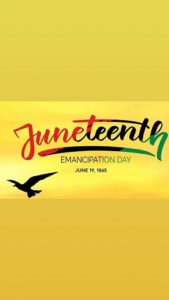






 This has gotten heated…
This has gotten heated…



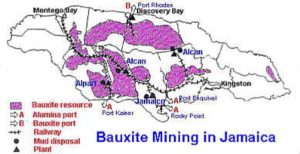


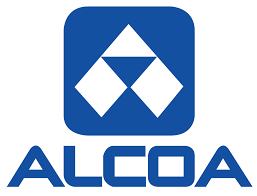
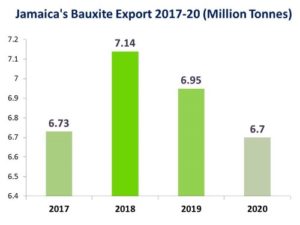
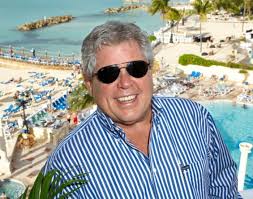 Gordon “Butch” Stewart has died. 🙁
Gordon “Butch” Stewart has died. 🙁 Butch Stewart labored to promote, provide and protect Caribbean interest all over the world. He proved to be a fine role model for the Caribbean youth to emulate. In fact, his profile was featured in the 2013 book Go Lean…Caribbean – on Page 189 – this publication serves as a roadmap for rebooting the Caribbean societal engines of economics, security and governance. See that published profile in the Appendix below.
Butch Stewart labored to promote, provide and protect Caribbean interest all over the world. He proved to be a fine role model for the Caribbean youth to emulate. In fact, his profile was featured in the 2013 book Go Lean…Caribbean – on Page 189 – this publication serves as a roadmap for rebooting the Caribbean societal engines of economics, security and governance. See that published profile in the Appendix below.
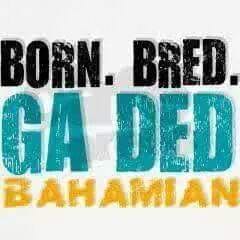
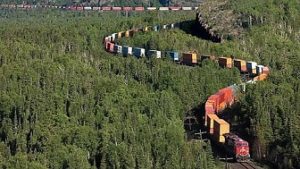
 The 2012 Nobel Peace Prize was awarded to the EU “for over six decades having contributed to the advancement of peace and reconciliation, democracy and human rights in Europe” by unanimous decision of the committee in Norway.
The 2012 Nobel Peace Prize was awarded to the EU “for over six decades having contributed to the advancement of peace and reconciliation, democracy and human rights in Europe” by unanimous decision of the committee in Norway.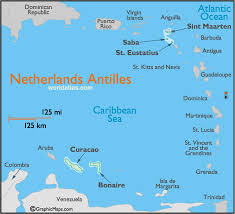 There are Caribbean territories that are actually members of the European Union … kinda. That would be the French Antillean islands (Guadeloupe, Martinique, St. Bartholomew and St. Martin) and the Netherlands Antilles (
There are Caribbean territories that are actually members of the European Union … kinda. That would be the French Antillean islands (Guadeloupe, Martinique, St. Bartholomew and St. Martin) and the Netherlands Antilles (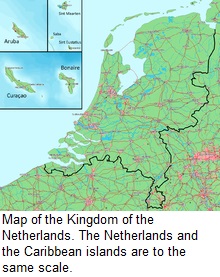
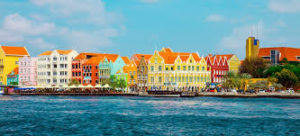
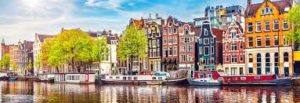

 …
…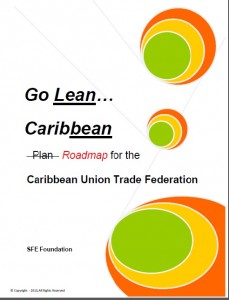
 a political and
a political and 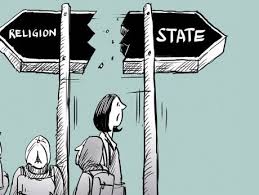

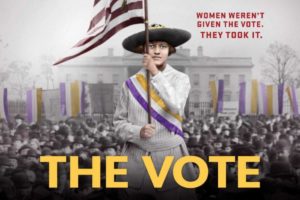 The European Netherlands have always been ahead of us in the Caribbean, but eventually everyone else catches up. Consider the example of universal suffrage: One Man / One Woman / One Vote.
The European Netherlands have always been ahead of us in the Caribbean, but eventually everyone else catches up. Consider the example of universal suffrage: One Man / One Woman / One Vote.

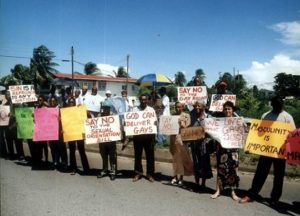

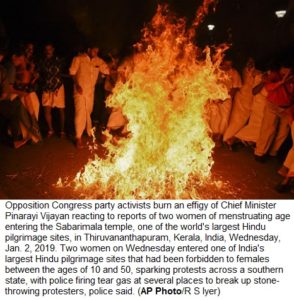
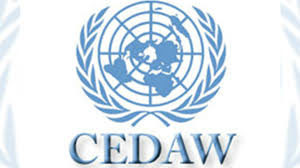
 What is the weather right now in Amsterdam, London, Paris and/or Washington DC?
What is the weather right now in Amsterdam, London, Paris and/or Washington DC?
 “They never told us it was dangerous,” Ambroise Bertin says. “So people were working, because they wanted the money. We didn’t have any instructions about what was, and wasn’t, good. That’s why a lot of people are poisoned.” He’s talking about chlordecone, a chemical in the form of a white powder that plantation workers were told to put under banana trees, to protect them from insects.
“They never told us it was dangerous,” Ambroise Bertin says. “So people were working, because they wanted the money. We didn’t have any instructions about what was, and wasn’t, good. That’s why a lot of people are poisoned.” He’s talking about chlordecone, a chemical in the form of a white powder that plantation workers were told to put under banana trees, to protect them from insects.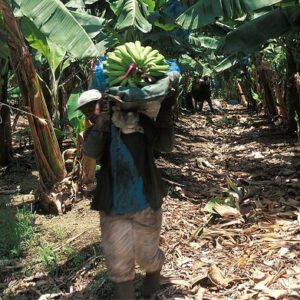 “They used to tell us: don’t eat or drink anything while you’re putting it down,” Ambroise, now 70, remembers. But that’s the only clue he and other workers in Martinique’s banana plantations in the 1970s, 80s and early 90s had about the possible danger. Few if any were told to wear gloves or masks. Now, many have suffered cancer and other illnesses.
“They used to tell us: don’t eat or drink anything while you’re putting it down,” Ambroise, now 70, remembers. But that’s the only clue he and other workers in Martinique’s banana plantations in the 1970s, 80s and early 90s had about the possible danger. Few if any were told to wear gloves or masks. Now, many have suffered cancer and other illnesses.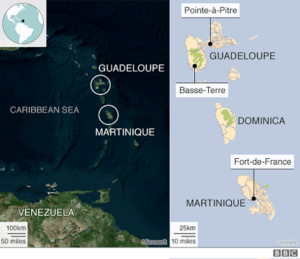
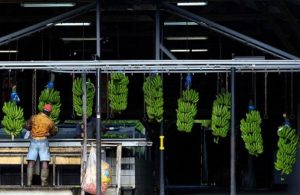 “Those are still the same group of people who have uncontested domination of the land,” says Guilaine Sabine, activist in a grassroots organisation called Zero Chlordecone Zero Poison. As well as campaigning for free blood tests for everyone on the island, members of the group have taken part in a new wave of protests over the last year aiming to draw attention to businesses that activists say have profited from the production and use of toxic pesticides. The demonstrations have been small, and some protesters have been convicted of violence against the police. But they reflect wider anger over the slow pace of France’s response to the chlordecone catastrophe.
“Those are still the same group of people who have uncontested domination of the land,” says Guilaine Sabine, activist in a grassroots organisation called Zero Chlordecone Zero Poison. As well as campaigning for free blood tests for everyone on the island, members of the group have taken part in a new wave of protests over the last year aiming to draw attention to businesses that activists say have profited from the production and use of toxic pesticides. The demonstrations have been small, and some protesters have been convicted of violence against the police. But they reflect wider anger over the slow pace of France’s response to the chlordecone catastrophe.

 Wanna get elected in the Unites States?
Wanna get elected in the Unites States?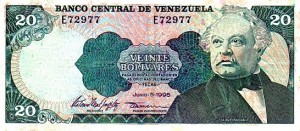 Featured article quotation:
Featured article quotation:  What’s next for Cuba … and Venezuela?
What’s next for Cuba … and Venezuela? Socialism continues in Cuba and Venezuela both. The revolutions in those countries have stalled. This has been the case for many years, decades and even generations. Perhaps more is needed than just influencing American Foreign Policy towards these countries; perhaps there is the need to impact domestic policy from inside the country. This is the approach of the Go Lean roadmap in regards to Cuba.
Socialism continues in Cuba and Venezuela both. The revolutions in those countries have stalled. This has been the case for many years, decades and even generations. Perhaps more is needed than just influencing American Foreign Policy towards these countries; perhaps there is the need to impact domestic policy from inside the country. This is the approach of the Go Lean roadmap in regards to Cuba.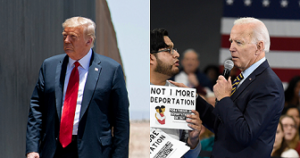 In 2016, many Caribbean people – i.e. Jamaicans – wanted the Democratic Party candidate, Hillary Clinton, to win the Presidency, hoping for a More Liberal Immigration policy.
In 2016, many Caribbean people – i.e. Jamaicans – wanted the Democratic Party candidate, Hillary Clinton, to win the Presidency, hoping for a More Liberal Immigration policy. 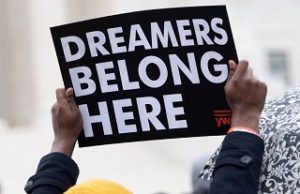 Most of the Jamaican Diaspora in the US –
Most of the Jamaican Diaspora in the US – 
 Unless your ancestors were native to these shores, or forcibly enslaved and brought here as part of our original sin as a nation, most Americans can trace their family history back to a choice – a choice to leave behind everything that was familiar in search of new opportunities and a new life. Joe Biden understands that is an irrefutable source of our strength. Generations of immigrants have come to this country with little more than the clothes on their backs, the hope in their heart, and a desire to claim their own piece of the American Dream. It’s the reason we have constantly been able to renew ourselves, to grow better and stronger as a nation, and to meet new challenges. Immigration is essential to who we are as a nation, our core values, and our aspirations for our future. Under a Biden Administration, we will never turn our backs on who we are or that which makes us uniquely and proudly American. The United States deserves an immigration policy that reflects our highest values as a nation.
Unless your ancestors were native to these shores, or forcibly enslaved and brought here as part of our original sin as a nation, most Americans can trace their family history back to a choice – a choice to leave behind everything that was familiar in search of new opportunities and a new life. Joe Biden understands that is an irrefutable source of our strength. Generations of immigrants have come to this country with little more than the clothes on their backs, the hope in their heart, and a desire to claim their own piece of the American Dream. It’s the reason we have constantly been able to renew ourselves, to grow better and stronger as a nation, and to meet new challenges. Immigration is essential to who we are as a nation, our core values, and our aspirations for our future. Under a Biden Administration, we will never turn our backs on who we are or that which makes us uniquely and proudly American. The United States deserves an immigration policy that reflects our highest values as a nation. … We can get close but never quite catch up. One realizes that this is the same with immigrating to the United States. Despite being a Nation of Immigrants (NOI), new ones can never catch up with the Settlers. Consider the historicity of this distinction in the Appendix article
… We can get close but never quite catch up. One realizes that this is the same with immigrating to the United States. Despite being a Nation of Immigrants (NOI), new ones can never catch up with the Settlers. Consider the historicity of this distinction in the Appendix article 